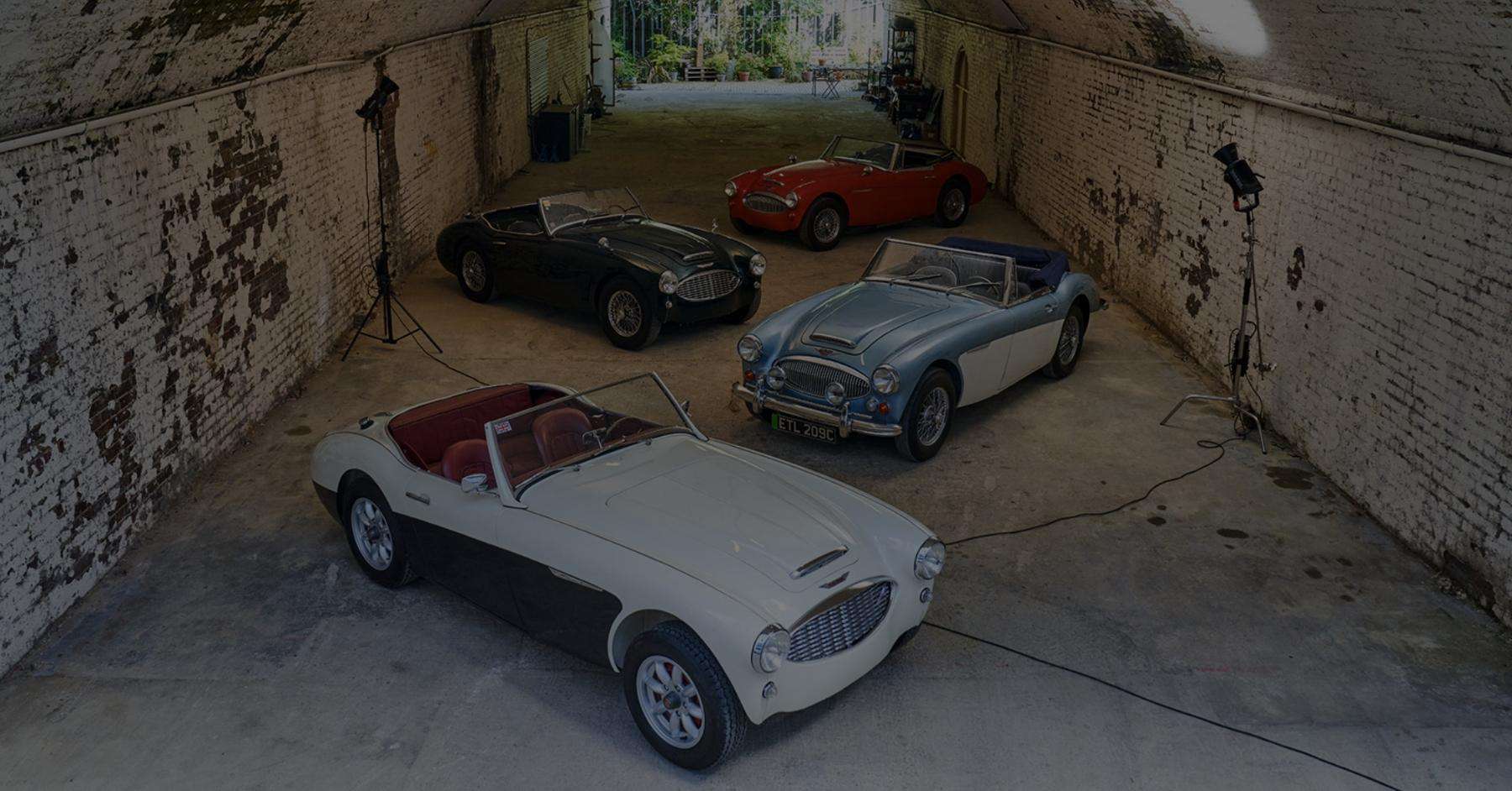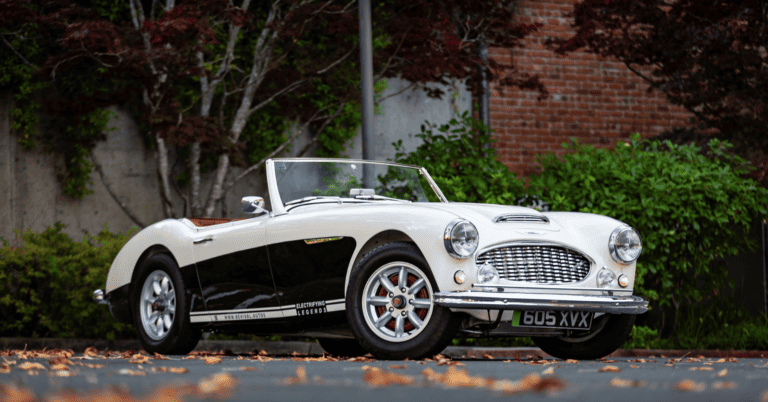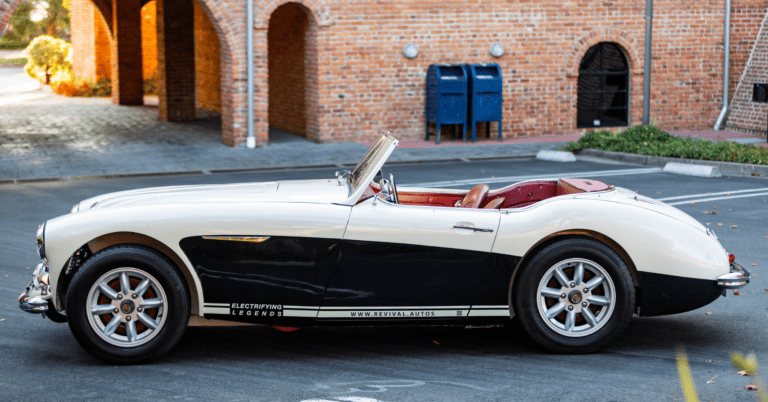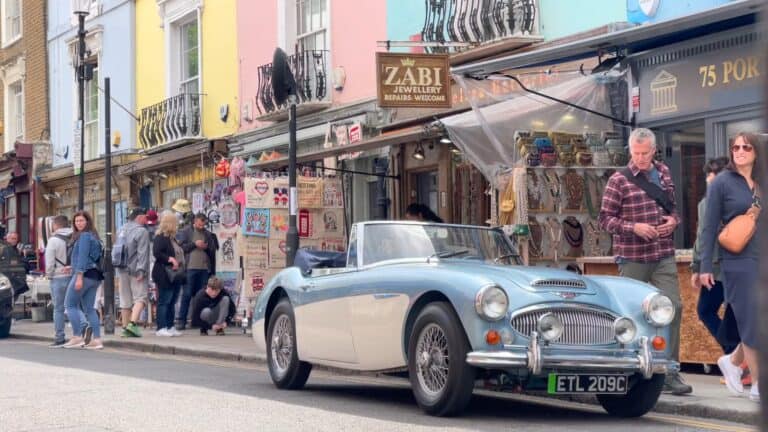The world of classic cars, celebrated for its timeless designs and rich historical significance, is currently experiencing a profound transformation in response to the growing emphasis on sustainability and environmental consciousness. Enthusiasts are increasingly drawn to the idea of converting these automotive relics into eco-friendly electric vehicles. But can such a transformation be realistically achieved? In this exhaustive guide, we delve deep into the intricacies and considerations of converting a classic car to electric, offering you a comprehensive roadmap for this electrifying journey.
Learn more: electric classic cars
The Conversion Process: A Detailed Exploration
Converting a classic car into an electric vehicle is a meticulous, transformative process that involves several key phases:
- Vehicle Selection
The journey begins with the careful selection of the classic car you intend to convert. Considerations such as the vehicle’s weight, structural condition, and available space for batteries are of paramount importance.
- Extraction of the Internal Combustion Engine
The heart of the classic car, its internal combustion engine, is surgically removed to make way for the electric powertrain.
- Installation of the Electric Powertrain
The conversion’s centerpiece involves the installation of the electric powertrain components. This ensemble comprises the electric motor, a battery array, and an intricate controller. The electric motor serves as the propulsion source, while the batteries store and deliver the required electricity.
- Customization and Aesthetic Preservation
Depending on your preferences, a wide range of customization options is available. Many enthusiasts prioritize preserving the classic car’s interior and exterior aesthetics, ensuring that its unique charm remains intact.
- Intricate Wiring and Seamless Integration
The complex electrical system is meticulously wired and integrated to ensure flawless synergy among all components, resulting in a harmonious and efficient vehicle.
- Comprehensive Testing and Optimization
Rigorous testing protocols are executed to verify the electric conversion’s efficiency, safety, and performance. Fine-tuning is often required to achieve the optimal balance.
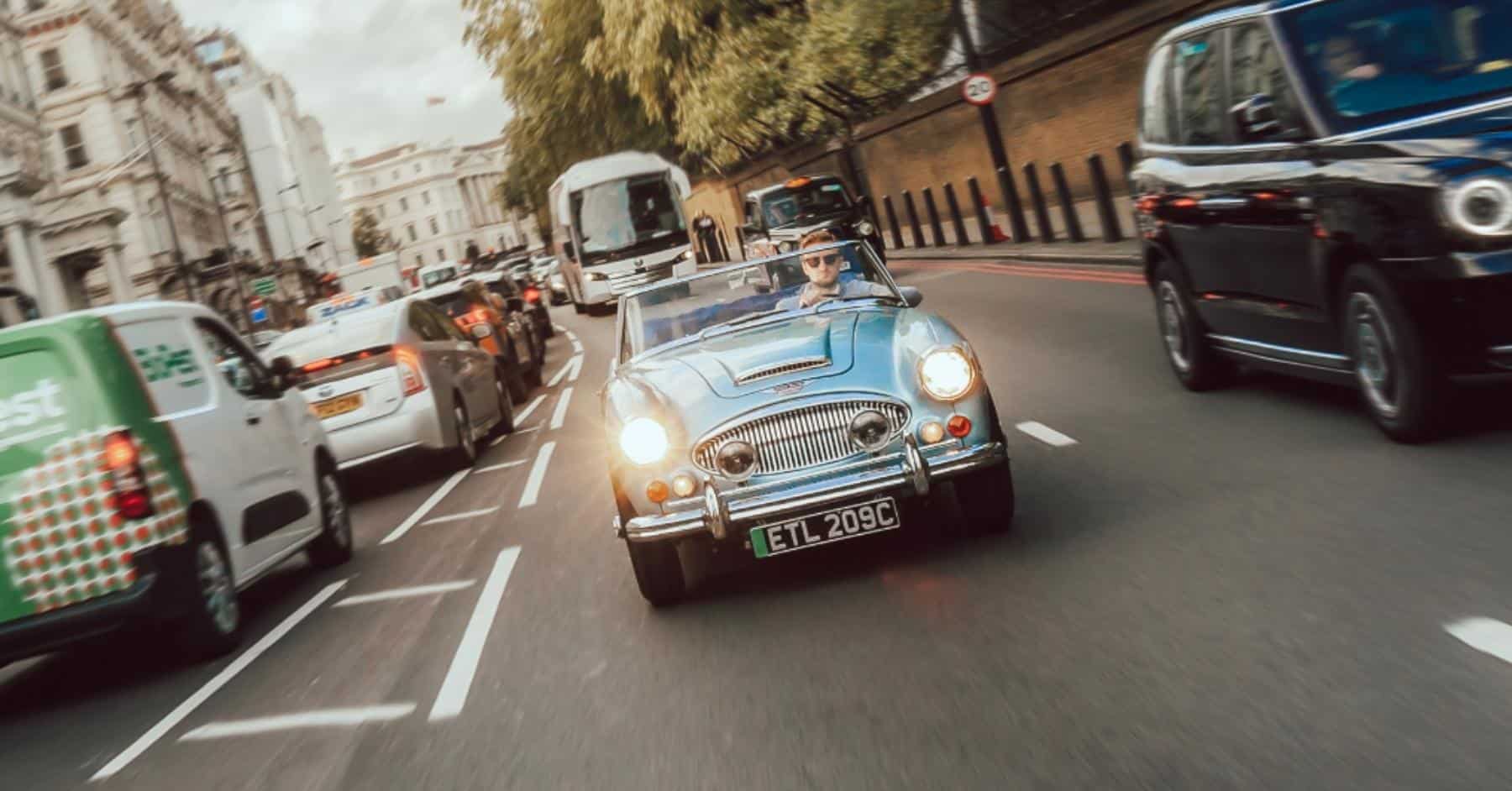
Key Considerations for Classic Car Electric Conversion
Before embarking on this electrifying journey, it’s imperative to weigh several crucial considerations:
- Budgetary Planning
Converting a classic car into an electric vehicle represents a substantial financial commitment. It is essential to account for the cost of components, skilled labor, and any desired customizations.
- Range Assessment
Carefully evaluate the anticipated range of your electric classic car. Consider your typical driving patterns and ensure that the projected range aligns with your intended usage.
- Charging Infrastructure Accessibility
The convenience of a reliable charging infrastructure cannot be overstated. Ensure that you have convenient access to charging stations, and contemplate installing a home charging unit if required.
- Regulations and Compliance
Vigilantly research the local regulations and safety standards that govern electric vehicle conversions in your area. Full compliance is essential to ensure your vehicle meets all safety and emissions prerequisites.
- Maintenance Outlook
While electric vehicles generally demand less maintenance due to their streamlined drivetrains, components like batteries may necessitate periodic attention and eventual replacement.
Conclusion: A Transformation Worth Pursuing
In conclusion, the conversion of a classic car into an electric vehicle is not only possible but also a rewarding endeavor for passionate enthusiasts. It harmoniously merges the nostalgic charm of vintage automobiles with the environmentally conscious ethos of electric mobility. However, embarking on this endeavor requires meticulous planning, a clearly defined budget, and an unwavering dedication to preserving the cherished heritage of your classic car. Achieving success in this transformation hinges on scrupulous attention to detail, expert craftsmanship, and a commitment to sustainable innovation. By carefully navigating these elements, you can revitalize your classic car while actively promoting a greener and more electrified future for the automotive world. Can you convert a classic car to electric? The answer is a resounding yes, with the right knowledge and resources at your disposal.
Revival Autos: Pioneering Classic Car Electrification
Discover Revival Autos, where classic cars meet electric innovation. We specialize in seamlessly converting iconic vintage automobiles into eco-friendly wonders. Our team of seasoned automotive engineers and passionate enthusiasts is driven by a singular mission: to breathe new life into classic cars while embracing sustainability.
Our Experts: The Craftsmen of Transformation
Meet the experts behind Revival Autos’s success. Our team comprises automotive visionaries with a deep love for classics and an unwavering commitment to sustainable innovation. With their technical prowess and devotion to excellence, they meticulously transform every classic car into an eco-friendly masterpiece, preserving its heritage and aesthetics. It’s craftsmanship at its finest, where nostalgia marries a cleaner, greener future.
FAQ
Can Any Classic Car Be Converted to Electric?
The feasibility of conversion depends on factors like the classic car’s size, weight, and available space for batteries. Consultation with a specialist is essential to assess whether your specific classic car is suitable for conversion.
What’s the Typical Conversion Cost?
Conversion costs can vary widely based on factors such as the make and model of the classic car, the chosen components, and any customizations. Generally, conversions can range from several thousand to tens of thousands of dollars.
How Long Does the Conversion Process Take?
The timeline for conversion can vary, typically spanning several weeks to a few months. The duration depends on the complexity of the project and any specific customizations.
Does an Electric Conversion Affect the Car’s Value?
A well-executed electric conversion can positively impact a classic car’s value, particularly if it enhances performance and maintains the car’s original aesthetics.
Can I Still Use My Classic Car Daily After Conversion?
Yes, you can use your classic car as a daily driver after conversion, provided that the electric range and availability of charging infrastructure meet your daily driving needs. Many electric classics are designed for practical daily use.
What About Maintenance for Electric Classics?
Electric classics generally require less maintenance than their gasoline counterparts due to their fewer moving parts. However, it’s important to consider battery maintenance and potential replacement over time.
Is Reversing an Electric Conversion Possible?
Reversing an electric conversion is technically possible but a complex and uncommon process. It often involves significant modifications to restore the classic car to its original configuration.
How Does Range Compare to Gasoline Cars?
The range of an electric conversion can vary depending on factors like battery capacity and efficiency. Some electric classics can achieve ranges comparable to their original gasoline counterparts.
What Charging Infrastructure Do I Need?
Access to standard home charging or public charging stations is necessary to charge your electric classic, depending on your daily driving habits and access to charging facilities.
Are There Tax Incentives for Electric Conversions?
In some regions, there may be incentives or tax credits offered for electric vehicle conversions. It’s advisable to check with local authorities to understand the specific incentives available in your area.

